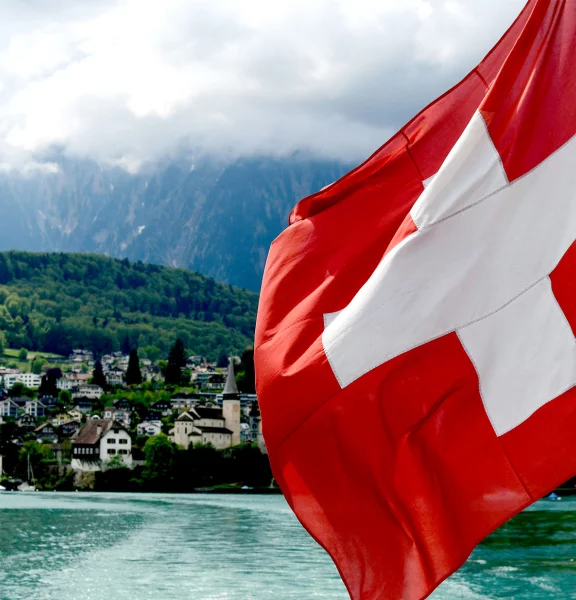The MBA Cultural Fit Index compares schools along different cultural dimensions.
Get a free consultation

International MBA students
Student satisfaction rate
Schools accredited by AACSB, AMBA or EQUIS
Average annual salary
Your guide to studying in Switzerland
Each year, Switzerland’s high quality of life and top-tier education system attract thousands of new students from diverse backgrounds. International MBA candidates can quickly get used to its multilingual environment where English, French, German, and Italian are all widely spoken. Located in central Europe, Switzerland features beautiful landscapes, mountain peaks in the Alps, and a safe environment in which to live and work. Places like Zurich, Geneva, and Bern consistently rank among the world's most livable cities thanks to the efficient public transportation and excellent healthcare.
Cultural Specifics of Switzerland
With its four national languages (German, French, Italian, and Romansh) and constantly changing cultural scene, Switzerland is incredibly diverse. The Swiss are usually direct and formal in their communication and they respect the personal space and privacy of those around them. When meeting someone for the first time, people opt for a firm handshake and make sure to address the other person by their title and surname, only moving on to first names when all sides agree to it. Locals value punctuality and being late is considered disrespectful.
The Swiss also take pride in their country’s neutrality and “playing Switzerland” has become a common way to say that you’re staying out of a dispute. The environment holds an important place in Switzerland’s culture and values and sustainable practices are well-developed. There are different traditional customs that can be enjoyed seasonally, including festivals and outdoor activities.
Business Culture in Switzerland
Precision and professionalism are the cornerstones of business culture in Switzerland. The communication taking place in business settings is a mix of polite and to the point – people rarely engage in small talk or non-verbal communication. They structure their meetings well in advance and follow the agenda closely. Business settings have their own dress code, which is mostly conservative – men might wear a dark suit, while women would go for an elegant business outfit. In Swiss companies, there is a clear chain of command and people respect their higher-ups.
People often associate Switzerland with discretion, reliability, and punctuality.
The experiences of students and alumni in Switzerland
Everything you need to know about setting your MBA goals in one place.
Learn how to assess it and get better at balancing business education and work.
Advantages of the MBA programs in Switzerland
The latest Financial Times MBA and EMBA rankings list 4 Swiss schools among the top in the world, recognizing their strategic locations and the significant advantages in networking and career opportunities they provide. Of the only 129 schools globally that hold the coveted Triple Crown accreditation, 2 universities in Switzerland are accredited by AACSB, EQUIS, and AMBA – a marker of high educational standards and international credibility.
Scholarships in Switzerland are offered by universities as well as by independent organizations and foundations and usually focus on students from emerging markets or women in business. Some of them may go on to cover not just MBA tuition fees, but also living costs and health insurance. For example, the Nestlé Scholarship for Women offers partial funding specifically for female MBA candidates at IMD Business School, supporting diversity in business education.
Many Swiss business schools have partnerships with global corporations, which sometimes offer scholarships or financial aid to promising students as part of their talent acquisition strategies. This combination of scholarships, government support, and corporate opportunities makes financing an MBA in Switzerland more accessible for international students. It also opens up opportunities for job placements in finance, marketing, and management, benefiting from the country’s high salaries and strong economy.
COMMON EXPENSES AND LEGAL ASPECTS
Cost of living
Rent of one-bedroom apartment in city center (monthly): CHF 1,692.32
Basic utilities (monthly): CHF 219.95
Public transport pass (monthly): CHF 80.00
Gym subscription (monthly): CHF 74.19
Water (1.5-liter bottle): CHF 1.01
Source: Numbeo
Visa requirements and work permits
To study in Switzerland, applicants need a student visa, which can be acquired by providing proof of enrollment in a recognized Swiss institution, sufficient financial resources, and health insurance. Non-EU/EEA students should apply for their visa in advance through the Swiss embassy or consulate in their home country. International candidates who wish to work alongside their studies can do so up to 15 hours per week during the semester and full-time during holidays, as long as they apply for a work permit from the local authorities.
FEATURED SCHOOLS IN Switzerland



Available programs:
Explore the most popular MBA programs in Switzerland
You might also be interested in...
Request a consultation
Get a free consultation with our expert advisors and discover the MBA that best suits your profile and aspirations.

